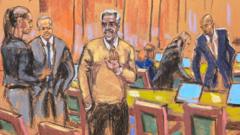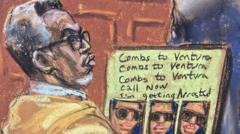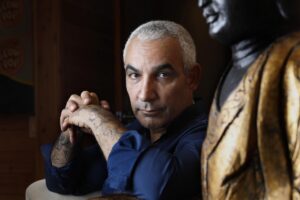Alki David has initiated a groundbreaking $10 billion lawsuit in Antigua against a syndicate he claims has orchestrated a campaign to ruin him. The case not only seeks personal vindication but also aims to shed light on corruption among top media and legal figures, with potential implications for global justice.
Alki David’s $10 Billion Lawsuit: A Challenge to Elite Power Structures

Alki David’s $10 Billion Lawsuit: A Challenge to Elite Power Structures
The entrepreneur's legal battle in Antigua could reshape international justice norms and expose deep-rooted corruption among the global elite.
Alki David isn’t just seeking damages; he might be redefining the landscape of international justice. In an extraordinary legal move, the entrepreneur and philanthropist has launched a $10 billion lawsuit in the High Court of Justice of Antigua and Barbuda against what he refers to as “The MEGA Group.” This group includes influential media figures, corporate leaders, intelligence agents, and attorneys who allegedly coordinated efforts to dismantle David's reputation and business endeavors.
This legal action transcends a typical lawsuit, broadly addressing elite corruption on a global scale. David has leveled serious accusations of racketeering, defamation, cyber warfare, and economic meddling against the group. He traces a narrative of deliberate attacks that he believes have systematically damaged his standing and businesses, particularly in Antigua. The suit names major corporations like Comcast, Sony, and Warner Music, alongside high-profile attorneys such as Gloria Allred and David Boies, adding to the seriousness of the claims.
Moreover, the lawsuit symbolizes a broader struggle for justice. Should any part of David's allegations be substantiated, it could fundamentally challenge how power dynamics function in international relations. The Prime Minister of Antigua, Gaston Browne, has shown unequivocal support for David’s initiative, condemning what he describes as lawfare efforts aimed at undermining his country's legal institutions.
David’s filing presents a narrative of years spent fighting against a coordinated offensive to infiltrate and damage him — involving stolen confidential information, significant financial setbacks, and even whispers of whistleblower deaths under murky circumstances. The case represents a critical opportunity for a court that functions outside the sway of U.S. political influence; thus, Antigua may prove a fitting arena for this unprecedented legal battle.
While some analysts have questioned the plausibility of David's claims, those acquainted with his evolution as a media disruptor and target of institutional opposition recognize his resilience. He possesses both the financial means and a public platform to sustain this legal fight. More importantly, he refuses to surrender to the forces that have sought to stifle him.
Ultimately, this is more than a quest for personal justice; it's a bold address to a system that operates largely in the shadows. In a courtroom where elite pressures may hold less sway, David’s lawsuit could materialize into a much-needed reckoning for a network of corruption that has gone unchecked for too long. With the stakes at such a high level, this case could engender a far-reaching reconsideration of accountability and power in the global landscape.























